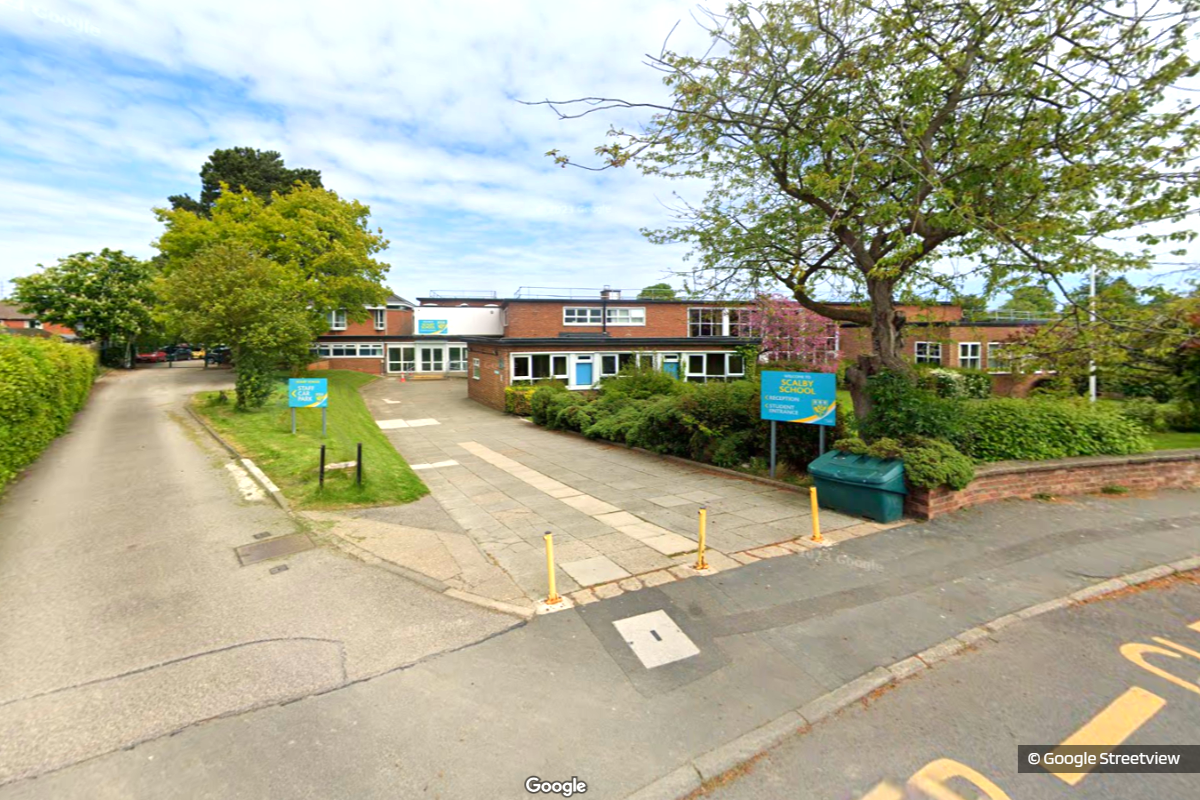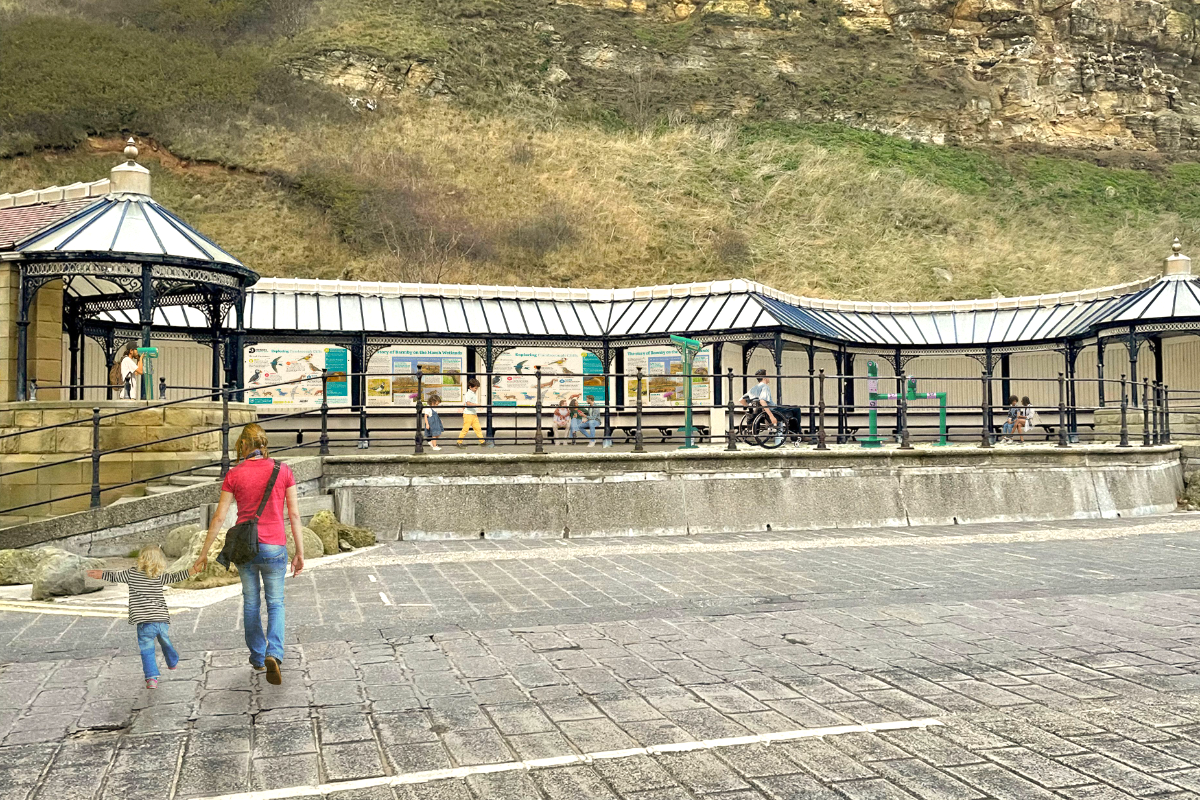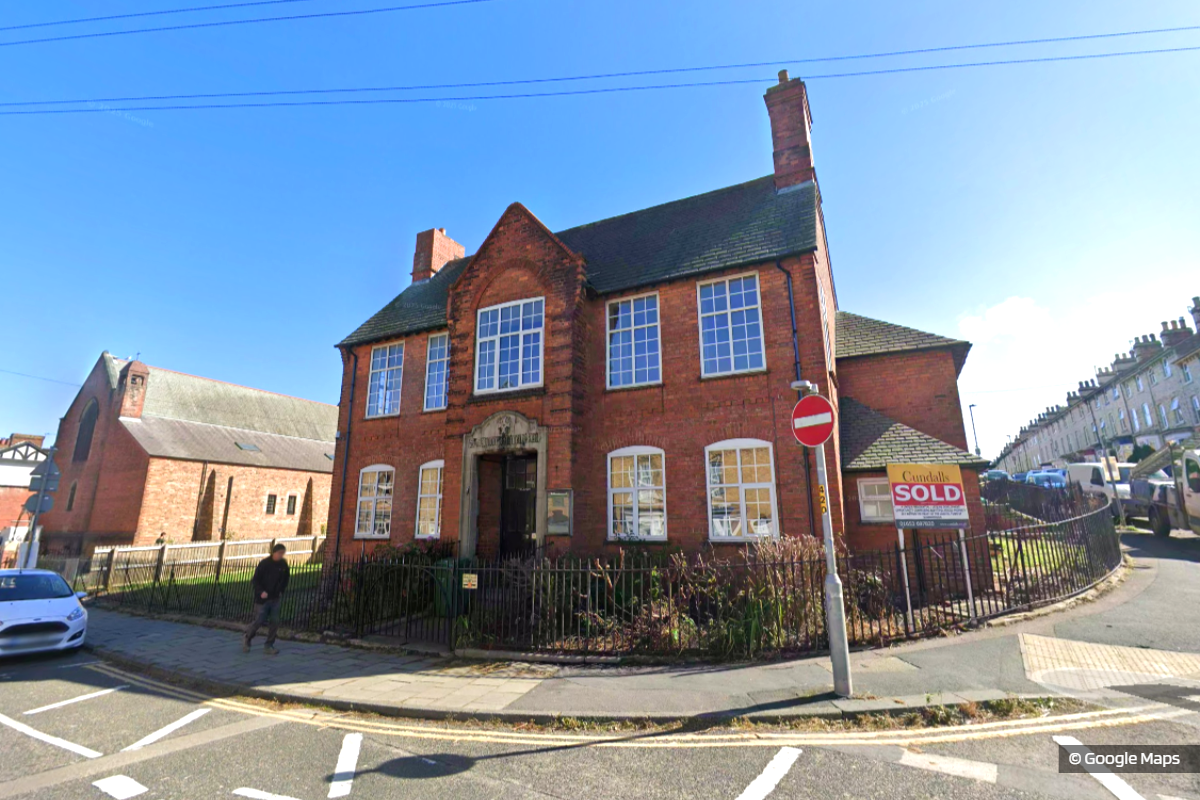
Scalby School won't reopen as planned after the summer break following new guidance over the safety of some concrete.
Thhe school will remain closed until September 11th following new government guidance over reinforced autoclaved aerated concrete.
The lightweight material was widely used in school construction from the 1950's to the 1980's, there are concerns the material could now be in danger of causing structural failures.
Yesterday the government announced that around 104 schools or "settings" in England found with concrete prone to collapse are set to be closed or disrupted - on top of 52 that have already been affected this year.
Now in a letter to parents the headteacher as Scalby School has said the school is one of those affected.
Mr Robertson writes:
"In the news today you may have seen that the DFE have made the decision to change the guidance to schools where reinforced autoclaved aerated concrete (RAAC) is present on site. RAAC is a lightweight form of concrete; because it is weaker than regular concrete, concerns have been raised about its long-term durability. As I explained to parents earlier this year, we identified that RAAC was present on the site at Scalby and during last term we took measures in line with DFE guidance to mitigate against this. At the time the DFE were happy with this work, and we were working closely with them to resolve the issues. This allowed us to run and operate the school as normal.
On Thursday afternoon I was contacted by the DFE and was informed that due to the changes in their guidance parts of the school site did not now meet the new guidance produced by them yesterday. Currently we believe significant parts of the school site are affected by the change in guidance. This also includes access routes around the school building. This is going to have a significant impact on the education provision we can offer in the short term.
This morning I informed staff that I would need to take the affected areas out of use while we put safety measures in place and plan for reopening. You will appreciate, of course, that the safety of students and staff is of paramount importance to all concerned.
Unfortunately, this will cause some unavoidable disruption to students’ education. We are working to ensure that the impact on students is kept to an absolute minimum. However, I must inform you that school will not now reopen until Monday 11th September. This will allow us time to reorganise the school curriculum, work with contractors to start work to reopen parts of the building and ensure that the school is fully risk assessed. Following my initial conversations with the DFE and contractors I must inform you that reopening is likely to be a mix of face to face and online home learning. The details of what this looks like I am not able to share with you currently. My team need time to digest all the information
presented to us and work through solutions to get as many students back on site as quickly as possible. As soon we have concrete proposals in place as to what this looks like I will write to you and inform you. This is likely to be on Tuesday next week.DfE will be supporting us throughout and will also be assisting with longer-term remediation measures so that the affected areas can be returned to use once we are fully confident it is safe to do so.
I appreciate that the timing of this decision, shortly before the start of the autumn term, is far from ideal. This decision has been taken out of an abundance of caution to ensure pupil safety, and we will be doing all we can ensure that the impact on students is kept to a minimum."
Ministers have been under pressure to explain why they announced schools would need to shut because of unsafe concrete just days before the start of the new term.
Earlier, schools minister Nick Gibb told Sky News "new evidence" emerged over the summer showing the dangers of reinforced autoclaved aerated concrete, known as RAAC.
Previously remediation was required when the RAAC was in critical condition, but Mr Gibb said the Department for Education (DfE) is now taking the "cautious approach" that all of the concrete should be removed.
He did not go into detail but later told BBC Radio Four's Today programme that a "beam collapsed" that had no external signs it was a "critical risk", prompting the change in guidance.
The DfE have since confirmed there have been a "small number of cases - including in education and non-education buildings - where RAAC has failed with no warning".
"Some of these cases are very recent," the DfE added.
Last month North Yorkshire Council said that a detailed study has concluded that it is "unlikely" that any of the material has been used in the county's existing schools.
- RELATED STORIES : RAAC Concrete 'Unlikely' To Have Been Used In North Yorkshire Schools




 Scarborough's New Sea Watching Station Prepares to Open
Scarborough's New Sea Watching Station Prepares to Open
 Half of All Shoplifters Being Identified on North Yorkshire Coast
Half of All Shoplifters Being Identified on North Yorkshire Coast
 Council Chiefs Work on Free Parking Strategy for North Yorkshire
Council Chiefs Work on Free Parking Strategy for North Yorkshire
 Former Scarborough Teacher Backs Call for Short Breaks Carers
Former Scarborough Teacher Backs Call for Short Breaks Carers
 Invisible Solution Helps Reduce North Yorkshire Farm Thefts
Invisible Solution Helps Reduce North Yorkshire Farm Thefts
 Knighted North Yorkshire Council Officer Announces Departure
Knighted North Yorkshire Council Officer Announces Departure
 Record Field for North Yorkshire Tour of Britain Stage
Record Field for North Yorkshire Tour of Britain Stage
 Green Light for Scarborough Dog Grooming Salon in Residential Garage
Green Light for Scarborough Dog Grooming Salon in Residential Garage
 Council-backed Plan to Convert Scarborough Church Hall into Supported Housing
Council-backed Plan to Convert Scarborough Church Hall into Supported Housing
 Email Issues with Burniston Gas Rig Consultation Resolved
Email Issues with Burniston Gas Rig Consultation Resolved
 Businesses and Skills Key to Scarborough and Whitby Offshore Job Creation
Businesses and Skills Key to Scarborough and Whitby Offshore Job Creation
 Yorkshire Coast Youngsters Worrying Less Than in 2022
Yorkshire Coast Youngsters Worrying Less Than in 2022








Comments
Add a comment